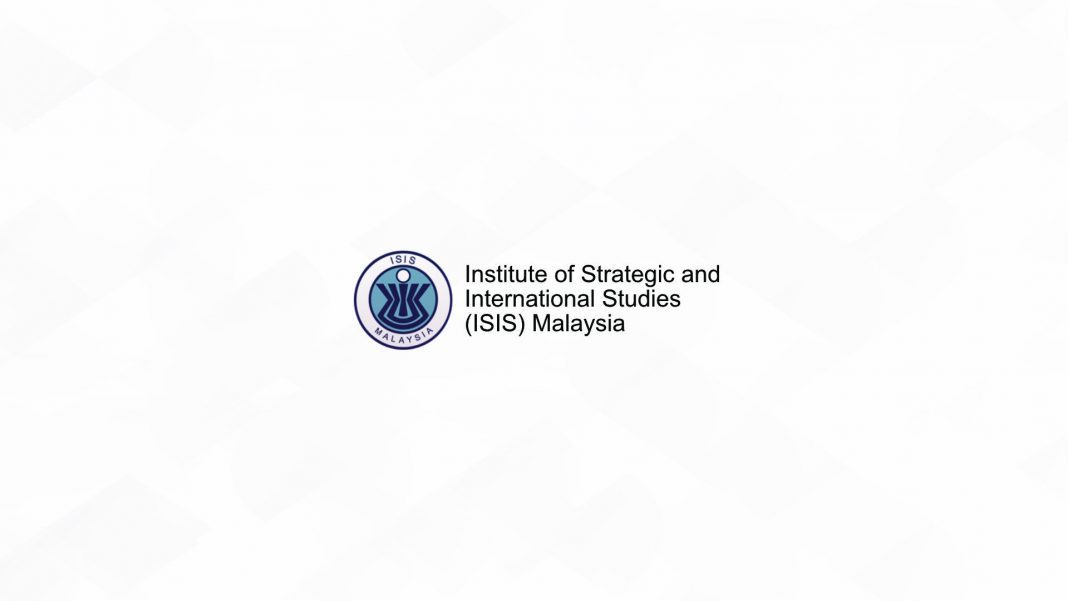Sarawak, the largest state in Malaysia, has found herself in uncharted waters. For the first time in history since the formation of Malaysia, the Land of the Hornbills, which had always been coined as Barisan Nasional’s “ fixed deposit”, is now an opposition state and governed by an independent state-based coalition.
Subsequent to the fall of the Barisan Nasional (BN) government following Malaysia’s 14th General Election (GE14) on 9 May 2018, Sarawak Barisan Nasional, the state’s government made a unanimous decision to pull out from the Barisan Nasional coalition to form a state-based pact, named Gabungan Parti Sarawak (GPS – Sarawak Parties Alliance). The Pact composed of parties of the state ruling coalition – Parti Pesaka Bumiputera Persatu (PBB), Sarawak United People’s Party (SUPP), Parti Rakyat Sarawak and Parti Demokratik Progresif.
How does this affect the political landscape of Sarawak? Sarawak, to this day, remains to be the only state in the country where the United Malays National Organisation (UMNO) is not present. Although the previous federal government was led by UMNO, there was never an opportunity for it to set foot in the Land of the Hornbills. This is mostly attributed to the assurance given by former UMNO presidents to Sarawak BN leaders, based on the mutual understanding that the state should be governed by its own local parties.
Despite this assurance, there had been efforts by UMNO to spread its wings to Sarawak, but were faced with strong opposition from PBB and Sarawakians in general. Many Sarawakians believe that there is a clear disconnect between Putrajaya and the needs of the people in Sarawak since local based parties have a better understanding of their needs than those based in the Peninsular. This is especially the case for those living in rural areas in spite of the strong support for Peninsular-based parties, which is largely evident in the urban and semi-urban areas. This is expected given the difference in priorities and needs between the two.
Following the dissolution of Sarawak BN, GPS continues to position themselves as the great defenders of the rights of Sarawakians, which are enshrined in the Malaysia Agreement 1963 (MA63). This move can be interpreted as a way to maintain its relevance and influence where local based parties will be put to the test with the imminent emergence of Parti Pribumi Bersatu Malaysia and possibly UMNO in the state.
GPS, with no current affiliation to the former or current government, believes that the state now has a better platform to focus on Sarawak’s interests and ask for its legal rights based on the MA63 and the Federal Constitution.
This claim is in fact nothing new, but something that was originally given to the state being an equal partner in the nation’s formation by way of the MA63. However, ignorance or cluelessness of their rights and position under the Constitution and the MA63 has rendered the people in the Borneon states passive in making their demands. This lack of assertion, coupled with perceived ignorance by the federal government, has inadvertently caused an “erosion” of these rights.
This heightened awareness can be attributed to the boldness of the late Pehin Sri Adenan Satem, the former Chief Minister of Sarawak, in publicly reclaiming what is believed to rightly belong to the state accorded by the MA63. This claim was triggered by the harsh realities on the ground that have festered for decades especially in the remote areas. Basic rights to health and education are greatly compromised due to insufficient connectivity caused by the lack of infrastructure and basic necessities, such as roads, clean water and electricity. Year after year, schools in the rural areas remain in their dilapidated state and it has become a point of contention between the federal and state governments, among other things.
This newfound awareness, however, has its drawbacks. In recent years, there have been calls, albeit only in certain pockets of the society, for “Sarawak for Sarawakians”. There are even reckless insinuations of secession from Malaysia if the rights enshrined in the MA63 are not returned to the state. These sentiments, in their varying degrees, will have serious implications on Malaysia’s social cohesion if the MA63 continues to be used as a political pawn to win votes in the state.
In the run-up to the GE14, as an attempt to unseat Sarawak BN as the defenders of the Sarawakians, the Pakatan Harapan (PH) had promised Sarawak full autonomy in education, healthcare and fiscal matters following the state’s demands for greater autonomy from the federal government. PH also pledged to give 50 percent of all taxes collected in Sarawak and 20 percent of oil royalties to the state government if they emerge victorious in capturing Putrajaya.
The setting up of a bipartisan Special Cabinet Steering Committee to study the MA63 is a significant and very much welcomed move towards delivering PH’s electoral promises to the Borneon states. Prime Minister Tun Dr Mahathir Mohamad chaired the first Steering Committee meeting on 17 December 2018 to review the MA63 as part of the federal government’s efforts to restore Sabah and Sarawak’s status as equal partners in Malaysia. The Steering Committee is expected to produce a report with recommendations to the federal government with respect to the implementation of the rights and autonomy of Sabah and Sarawak. This is a stark contrast from the usual gentleman’s handshake and behind closed doors dealings between politicians belonging in the same coalition practiced by the previous administration.
Recently, the proposal to amend Article 1(2) of the Constitution to “restore” the rights of Sabah and Sarawak as equal partners failed to be passed in Parliament. This may serve as a reminder that this is a delicate matter and cannot be rushed and regarded as just another item to be crossed o a checklist (PH Manifesto) to render a promise fulfilled.
Nursalina Salleh is an Analyst in Social Policy, ISIS Malaysia





